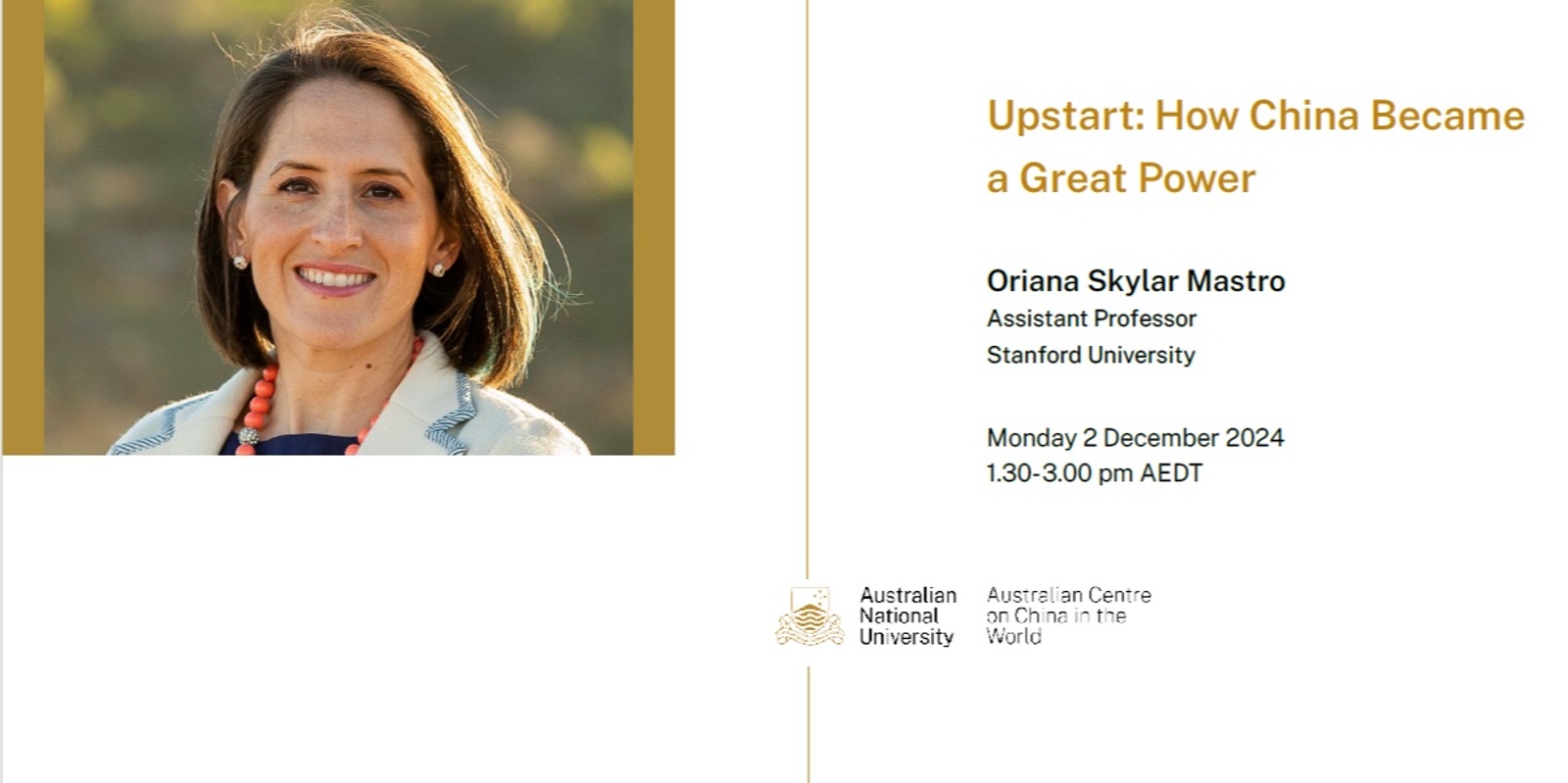Upstart: How China Became a Great Power
Event description
Thirty years ago, the idea that China could challenge the United States economically, globally, and militarily seemed unfathomable. Yet today, China is considered another great power in the international system. How did China manage to build power, from a weaker resource position, in an international system that was dominated by the U.S.? What factors determined the strategies Beijing pursued to achieve this feat?
Using granular data and authoritative Chinese sources, Oriana Skylar Mastro demonstrates that China was able to climb to great power status through a careful mix of strategic emulation, exploitation, and entrepreneurship on the international stage. This “upstart approach” — determined by where and how China chose to compete — allowed China to rise economically, politically, and militarily, without triggering a catastrophic international backlash that would stem its rise. China emulated (i.e. pursued similar strategies to the U.S. in similar areas) when its leaders thought doing so would build power, while reassuring the U.S. of its intentions. China exploited (i.e. adopted similar approaches to the U.S. in new areas of competition) when China felt that the overall U.S. strategy was effective, but didn’t want to risk direct confrontation. Lastly, China pursued entrepreneurial actions (i.e. innovative approaches to new and existing areas of competition) when it believed emulation might elicit a negative reaction and a more effective approach was available. Beyond explaining the unique nature of China’s rise, Upstart: How China Became a Great Power provides policy guidance on how the U.S. can maintain a competitive edge in this new era of great power competition.
About the Speaker
Oriana Skylar Mastro is a Center Fellow at the Freeman Spogli Institute for International Studies and Courtesy Assistant Professor of Political Science at Stanford University where her research focuses on Chinese military and security policy, Asia-Pacific security issues, war termination, and coercive diplomacy. She is also a nonresident scholar, Carnegie Endowment for International Peace and a member of the Council on Foreign Relations. She was previously an assistant professor of security studies at Georgetown University. Mastro continues to serve in the United States Air Force Reserve for which she currently works at the Pentagon as Deputy Director of Reserve China Global Strategy. For her contributions to U.S. strategy in Asia, she won the Individual Reservist of the Year Award in 2016 and 2022 (FGO). She has published widely, including in International Security, Security Studies, Foreign Affairs, Journal of Strategic Studies, The Washington Quarterly, the Economist and the New York Times. Her most recent book, Upstart: How China Became a Great Power (Oxford University Press, 2024), evaluates China’s approach to competition. Her book, The Costs of Conversation: Obstacles to Peace Talks in Wartime, (Cornell University Press, 2019), won the 2020 American Political Science Association International Security Section Best Book by an Untenured Faculty Member. She holds a B.A. in East Asian Studies from Stanford University and an M.A. and Ph.D. in Politics from Princeton University. Her publications and other commentary can be found at www.orianaskylarmastro.com and on Twitter @osmastro.
Tickets for good, not greed Humanitix dedicates 100% of profits from booking fees to charity


